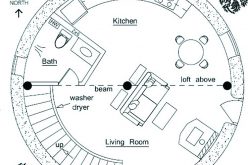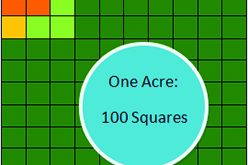If my dog bit me in 1990, it doesn’t necessarily mean your dog will bite you in 2015. And no matter how high you got as a youth, it’s quite possible I’m drug-free. Yet this logic is seldom applied to sustainable living. People connect their past experiences in a general field with specific modern situations, often coming to humorous conclusions.
Some farmers have tried organic methods which failed, and then declared organic farming impossible – for every organic farm that will exist in the world, ever. Someone’s off-grid house was struck by lightning and burned to the ground, so naturally any off-grid house would follow suit even if the structure is inflammable. Many people attempted to live in off-grid communities during the 1960s and 70s in very experimental ways, and found the lifestyle uncomfortable, dangerous, or too difficult – returning to cities and dooming to failure anyone who even thinks about attaching a solar panel to their home.
Some instances of “sustainable living” are worthy of the Darwin Awards. We’ve all heard stories from a friend-of-a-friend who did something-or-other and it seemed vaguely related to sustainability, but things didn’t go well. Someone reads one book on one topic, then dies trying to live in the wilderness. A guy attempts rainwater harvesting by catching roof water connected to a hose, and has to hold the hose up so his family can shower. You might even know a certain ex-vegan who declares, “I went vegan and lived on potato chips and rice…I felt terrible. Really, a vegan diet just won’t work for you!”
Collapsing alternative homes, or back-to-the-land youth almost starving to death, or the dreaded composting toilet turned public health hazard are all examples of what happens when action is taken in ignorance. Unnecessary experiments like these are not definitive of sustainable living. True, we will all make mistakes and have problems. But these mistakes can be different mistakes; these challenging problems can be new ones to tackle.
Transitioning to a sustainable lifestyle involves changing our way of thinking, and if we’re privileged enough to have access to knowledge, we study what works and what doesn’t. Especially what doesn’t. One of the main stereotypes of an off-grid lifestyle is that it needs to look like abject poverty and miserable suffering. People often send me photos or articles about families living off-grid in ways that don’t support human health, with a note, “Saw this and thought of you!” Losing a limb is not a necessary component of sustainable living any more than taking your dog to Mt. Everest is necessary to feed it kibble.
Do sustainable smart! If you make intentional, informed decisions about your lifestyle, it won’t eliminate every possible problem but it will make things easier the next time someone predicts your doom. And you won’t end up like that guy on the news who was trapped on his roof while trying to become a human solar battery.
Ripples is an emerging online educational center inspired by a holistic approach to making a difference. Follow our journey to live sustainably and make ripples with our lifestyle at: www.RipplesBlog.org.
by











